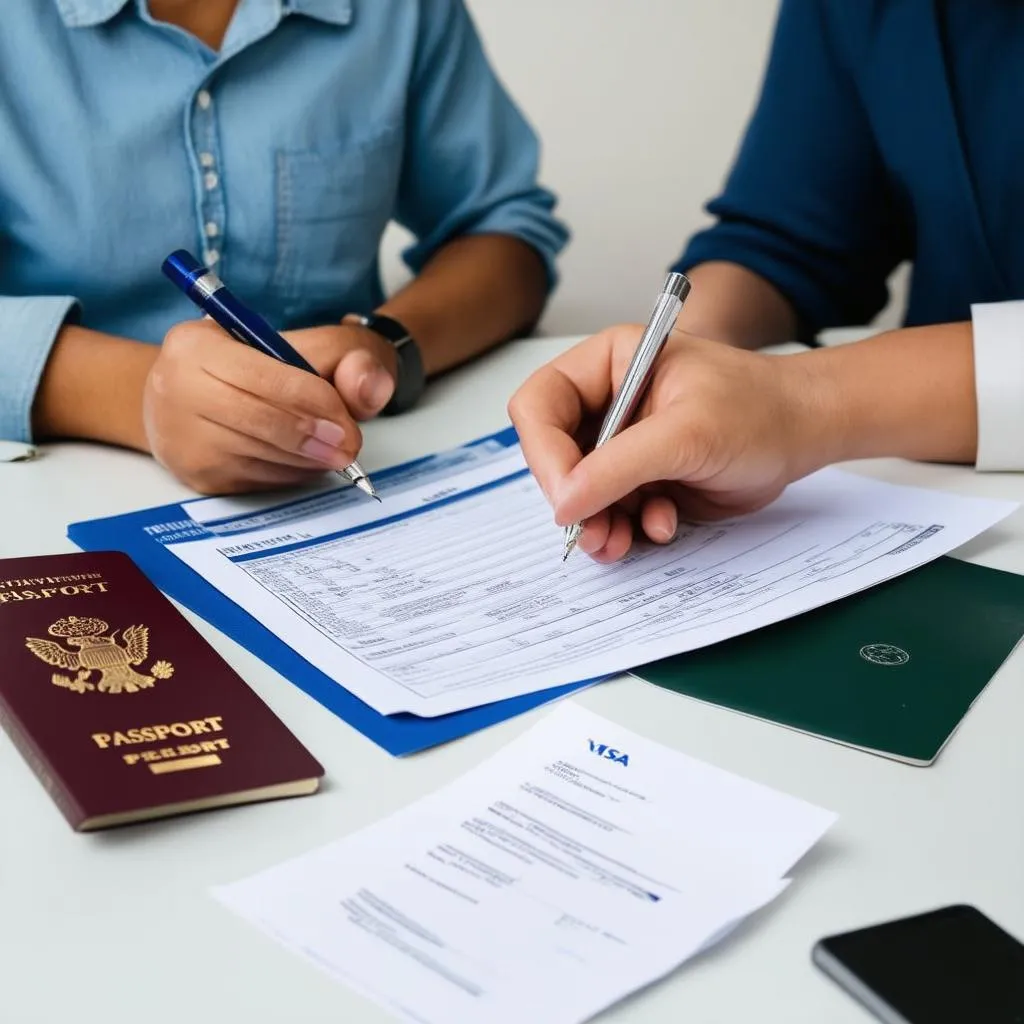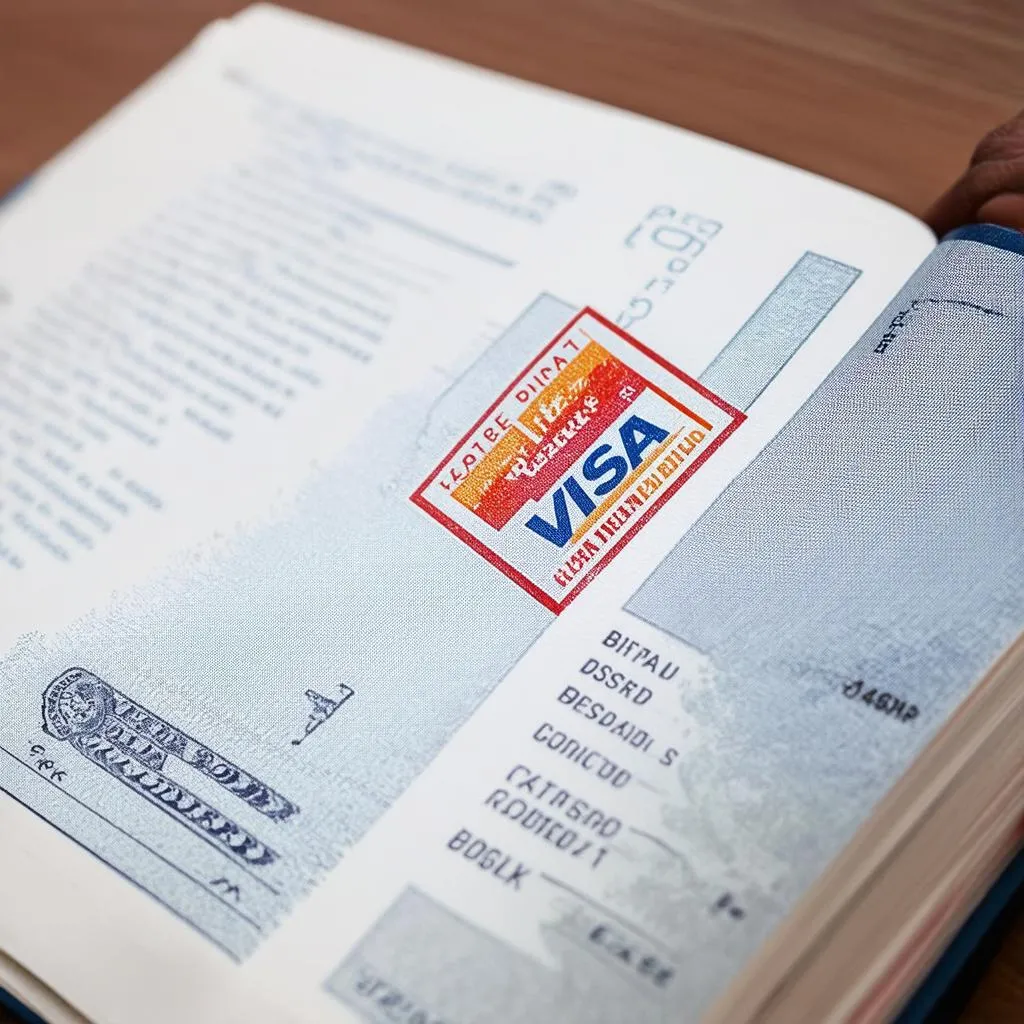Picture this: you’ve just booked a dream trip to Paris, the city of lights! You can practically taste the buttery croissants and smell the freshly baked baguettes. You’re daydreaming about strolling along the Seine, admiring the Eiffel Tower, and getting lost in the Louvre Museum. But wait, what about a travel visa? Do you need one to enter France?
A travel visa is a lot like a passport stamp that grants you permission to enter a foreign country. It’s an essential document for many travelers, acting as an official seal of approval from your destination country. But why do some countries require them while others don’t? Let’s dive in and explore the ins and outs of travel visas!
Understanding the Essentials: What Exactly is a Travel Visa?
In simple terms, a travel visa is a conditional authorization granted by a country to a foreigner, allowing them to enter, stay within, or leave its borders. Think of it as a key that unlocks the door to your travel destination.
Different Types of Travel Visas
Just like there are different types of keys for various locks, travel visas come in different forms, each serving a specific purpose:
- Tourist Visa: This is your go-to for sightseeing, leisure trips, or visiting friends and family abroad. It’s typically valid for a limited time, often ranging from a few weeks to several months.
- Business Visa: This type of visa is for professionals traveling for work-related purposes, such as attending conferences, meetings, or negotiating contracts.
- Student Visa: Geared towards individuals enrolled in educational programs, this visa allows you to live and study in a foreign country for the duration of your course.
- Transit Visa: If you have a layover in a country on your way to your final destination, you might need a transit visa, even if you’re just passing through.
- Work Visa: This allows you to take up employment in a foreign country. These visas are typically more difficult to obtain and often require sponsorship from a company.
Do You Need a Travel Visa?
Whether you need a visa or not depends on your nationality and your chosen destination. For instance, American citizens can travel to Italy for tourism purposes without a visa for up to 90 days. However, if you plan to stay longer or engage in activities like work or study, you’ll need to apply for the appropriate visa. You can find more information about traveling to Italy on our website.
Unsure about your specific case? Don’t worry! Websites like travelcar.edu.vn or the embassy website of your destination country can provide up-to-date information on visa requirements.
The Application Process: Navigating the Visa Maze
Applying for a travel visa involves a bit of paperwork and preparation. While the specific requirements vary depending on the country and type of visa, here’s a general overview:
- Complete the Application Form: Most countries have online application forms. Be sure to fill in all the information accurately and completely.
- Gather Required Documents: This typically includes your passport (with sufficient validity), recent passport-sized photographs, travel itinerary, proof of accommodation, financial statements, and a visa application fee.
- Attend an Interview (if required): Some countries require a personal interview at their embassy or consulate. This is an opportunity for them to learn more about your travel plans and assess your eligibility for the visa.
Tips for a Smooth Visa Application
- Apply Early: Don’t wait until the last minute! Processing times can vary, so it’s best to apply well in advance of your trip.
- Double-Check Your Application: Ensure all information is accurate and complete before submitting your application.
- Be Prepared for Your Interview (if applicable): Dress professionally, answer questions honestly, and be prepared to provide supporting documentation for your travel plans.
The Importance of Respecting Visa Regulations
Obtaining a travel visa is a privilege, not a right. It’s crucial to respect the terms and conditions of your visa. Overstaying your visa or engaging in activities not permitted by your visa type can have serious consequences, including fines, deportation, or even a ban from entering that country in the future.
Travel Visas: Your Ticket to Unforgettable Adventures
While the visa application process might seem daunting, it’s a necessary step for many travelers. Remember, travel visas are more than just pieces of paper; they’re your passport to unlocking incredible experiences and embracing the world’s diversity.
Do you have any questions about travel visas? Check out our FAQ section below, and feel free to reach out to us or leave a comment!
 Travel Visa Application
Travel Visa Application
 Passport with Visa Stamp
Passport with Visa Stamp
